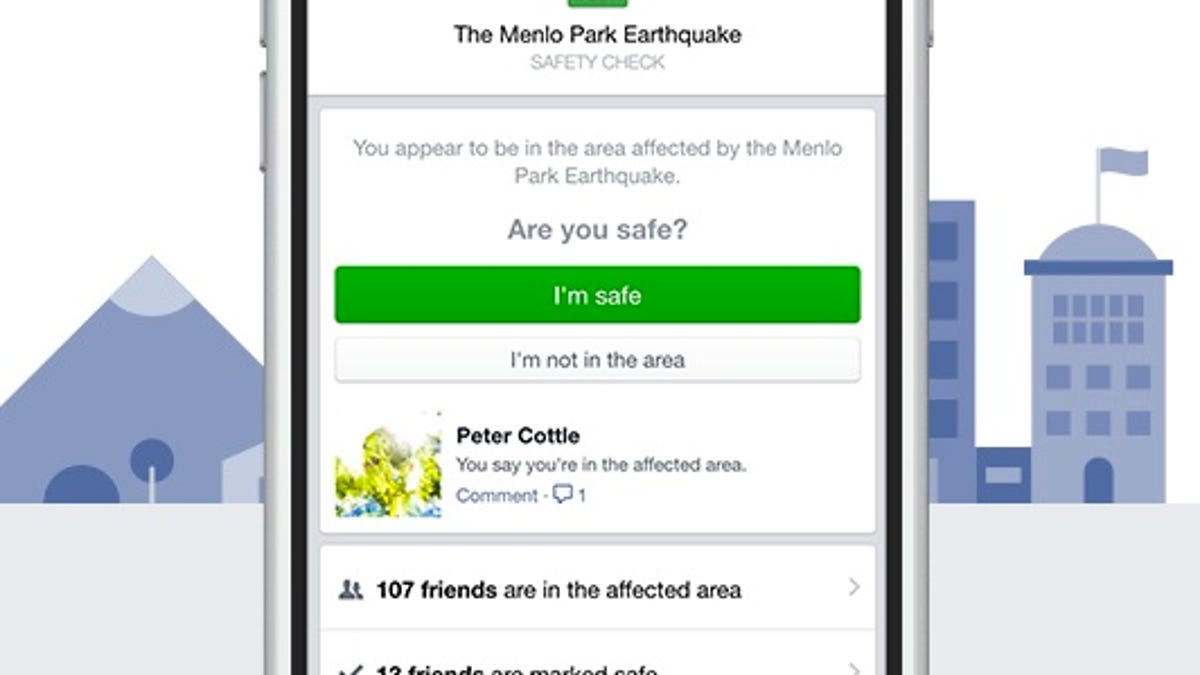Facebook to use Safety Check tool more widely after Paris attacks
The social network drew criticism for activating the status tool after the crisis in Paris but choosing not to switch it on after bombings in Beirut the previous day.
Facebook's Safety Check status tool, which was activated during Friday's terrorist attacks in Paris, remains a "work in progress."
That description from Facebook follows criticism that the social network has chosen not to switch on the feature after violent acts in other parts of the world, including bombings in Beirut one day earlier.
Safety Check automatically sends Facebook users in an affected area a note asking if they're safe. When a user clicks "Yes, let my friends know," the tool notifies their Facebook friends. Until Friday, the tool had only been activated during major natural disasters.
Mark Zuckerberg, CEO of the Mountain View, California-based company, vowed Saturday to use the status tool more often during human-created emergencies.
Facebook switched on the tool Friday after a series of shootings and bombings in France's capital killed more than 100 people and injured more than 350 others. Over 4 million people used the tool to mark themselves as safe.
After enacting another feature that lets people alter their profile pictures to express solidarity with Parisians, Facebook drew complaints for not extending the same attention to twin suicide bombings in a Beirut suburb on Thursday that killed more than 40 people and injured 200. The Islamic State of Iraq and Syria, or ISIS, claimed responsibility for the attacks in both cities.
"You are right that there are many other important conflicts in the world," Zuckerberg wrote Saturday in a comment on Facebook."We care about all people equally, and we will work hard to help people suffering in as many of these situations as we can."
Other social media outlets also provided a way for people to let family and friends know they were safe during the Paris attacks. Parisians took to Twitter to get information and to express solidarity, as well as to help those seeking safety. Under the hashtag #PorteOuverte ("open door"), Twitter users in Paris posted their addresses to offer shelter.
Facebook said it began working on Safety Check after an earthquake caused a devastating tsunami and nuclear plant disaster in Japan in 2011. The status tool has been activated a handful of times since its official launch in October 2014, including after earthquakes in Afghanistan, Chile and Nepal, Facebook said.
While noting that "communication is critical in moments of crisis," Alex Schultz, Facebook's vice president of growth, said the tool isn't perfect for all catastrophic events.
"In the case of natural disasters, we apply a set of criteria that includes the scope, scale and impact," Schultz wrote in a Facebook post Saturday. "During an ongoing crisis, like war or epidemic, Safety Check in its current form is not that useful for people: because there isn't a clear start or end point and, unfortunately, it's impossible to know when someone is truly 'safe.'"
Schultz said Facebook learned from the feedback it received following the Paris activation of Safety Check and will change its policy regarding when it activates the tool. He also said Facebook will "continue to explore how we can help people show support for the things they care about through their Facebook profiles."


